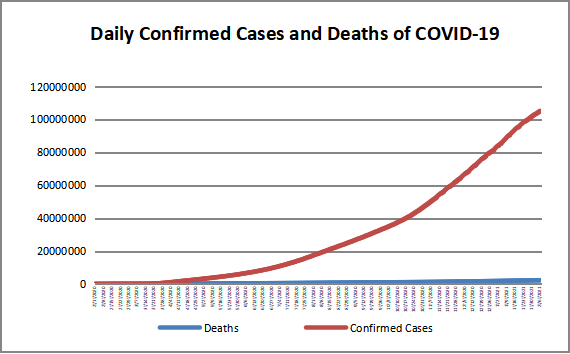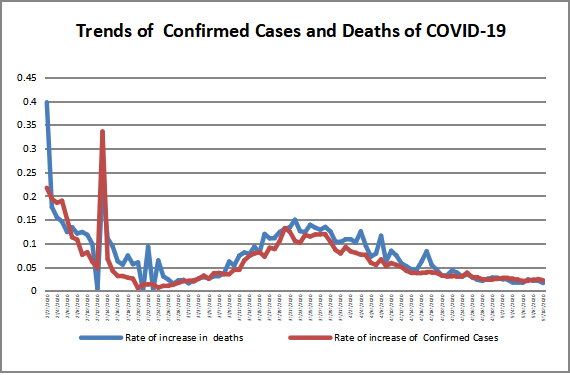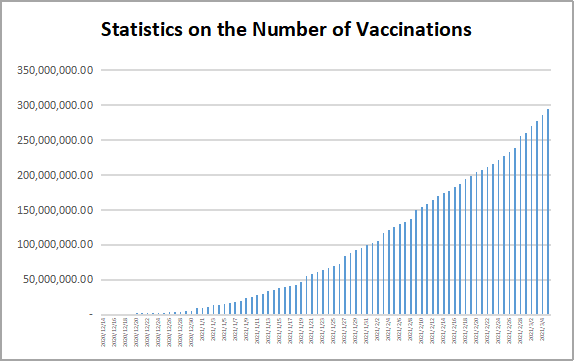TRIPS Council Held a Meeting to Discuss Possible Extension of Waiver Decision
Time:2022/07/21 BJT
1. Key concerns
At a meeting of the Council for Trade-Related Aspects of Intellectual Property Rights (TRIPS) on 6 July 2022, the Ministerial Decision on the TRIPS Agreement adopted at the 12th Ministerial Conference (MC12) was welcomed and discussed by WTO Members. Members also exchanged views on how to promote small businesses, inventors and other individuals to benefit from IP licensing.
On the extension of COVID-19 IP waiver, most members welcomed the Ministerial Decision on the TRIPS Agreement reached at MC12, and some members made new comments on extension of the waiver. Many members said the Ministerial Decision on the TRIPS Agreement reached at MC12 was proof that WTO members can put aside their differences and work together to address the most pressing health challenges. Under the Ministerial Decision on the TRIPS Agreement, members will have six months to decide whether to extend the waiver to testing and treatment drugs for the COVID-19 IP exemptions, with some Members indicating that the waiver for the COVID-19 vaccine did not meet their expectations and was not sufficient to help developing countries fully address current and future health challenges, and that equitable access to treatments and diagnostics was essential to help detect COVID-19 new cases and variants. For those reasons, these Members submitted a proposal to support the extension of the waiver. Many developing countries supported this initiative, highlighting the content of the joint statement issued by the three Director Generals of the World Health Organization(WHO), the World Intellectual Property Organization (WIPO) and the WTO in June 2021. Some members also noted the importance of evidence-based negotiations and the need for more time for domestic consultations on the issue. Members all agreed that the negotiation process for an expanded waiver should be open, inclusive and transparent.
Under an item on IP and Innovation, the co-sponsors presented their proposal at the meeting and members discussed it. At the meeting, the co-sponsors highlighted the main ways in which IP asset owners could ensure wider coverage of their products and services through licensing agreements that enable IP owners to allow licensees to make or sell inventions during the licence period, including licensing of patents, copyright, trademarks and know-how.
Proponents of the project shared experiences on how to apply different licensing models and create a friendly ecosystem to facilitate IP transactions; WIPO described its recent activities to support IP licensing, including the establishment of an IP and Innovation Ecosystem Unit, the WIPO Arbitration and Mediation Centre, and guidance for start-ups in developing IP strategies.
With regard to the non-violation and situation complaints, members have not yet reached agreement on the issue. Some developing country Members suggested continuing to review the scope and modalities of non-violation claims versus situational claims for application in WTO dispute settlement. Some Members supported the search for a permanent solution on this issue, while others were concerned that the flexibilities granted under the TRIPS Agreement might be jeopardised.
With regard to technical cooperation and capacity building, WIPO briefed this session on the WHO-WIPO-WTO COVID-19 Technical Assistance Platform. The platform provides a one-stop shop to help members and accession candidates address their capacity building needs in response to COVID-19 pandemic. The Chair urged members to submit information on their technical cooperation and capacity building activities and technology transfer incentives by 12 September.
2.Briefing on COVID-19 Pandemic(Issue No.200)
According to WHO statistics, calculated numbers of confirmed COVID-19 cases and deaths reached 554,290,112 and 6,351,801 by 12 July, 2022. The France, Italy, the United States, Germany and Brazil are the five countries (regions) with the highest number of new confirmed cases in the past seven days, and the United States, Brazil, Italy, Spain and France are the five countries (regions) with the highest number of new deaths in the past seven days.


https://covid19.who.int/
At the twelfth meeting of the International Health Regulations (2005) Emergency Committee regarding the COVID-19 pandemic, the Director General of the World Health Organization (WHO) accepted the recommendations of the Committee on COVID-19 and determined that COVID-19 continues to constitute a public health emergency of international concern. According to the University of Oxford's online research website Our World In Data, the total number of doses of COVID-19 vaccine administered worldwide had reached 12,155,580,964 by 11 July, 2022. At the twelfth meeting of the Emergencies Committee on COVID-19 held from 8 to 12 July 2022, the WHO Director-General expressed concern about the situation of the global COVID-19, which has seen a 30% increase in cases of COVID-19 reported to WHO in the last two weeks, mainly due to Omicron BA.4, BA.5 and other COVID-19 variants and the cancellation of public health and social measures.
The WHO Director-General identified the current challenges to the response to COVID-19: changes in detection policies that have impeded the detection of COVID-19 cases and the monitoring of COVID-19 evolution; inequalities in COVID-19 detection, treatment and access to vaccines; diminished natural and vaccine-derived protection; and the global burden of the aftereffects of the COVID-19. Based on this meeting, the WHO issued specific 11 interim recommendations to all States Parties.

Source:https://ourworldindata.org/covid-vaccinations
In terms of national (regional) responses to COVID-19, recent national (regional) measures have varied in breadth, with some countries (regions) progressively relaxing their previous outbreak control measures at various levels, while others having taken measures to promote COVID-19 vaccination. In the Americas, according to data from Johns Hopkins University, as of 17:21 EDT on 12 July, the cumulative number of confirmed cases of COVID-19 in the United States reached 88,904,503 and the cumulative number of deaths reached 1,021,763. In Europe, the European Centre for Disease Prevention and Control (ECDC) and the European Medicines Agency (EMA) have recommended that vulnerable people and people over 60 years of age receive a second booster dose of the COVID-19 vaccine; according to data released by the French public health authorities on 12 July, the cumulative number of confirmed cases of COVID-19 in France amounted to 31,786,373 and the cumulative number of deaths to 150,305, and France’s Scientific Council expects another wave to emerge in the future and that the vaccine remains the most effective tool to protect the public from serious infections; according to a statement by the Maltese authorities, from 25 July 2022, Malta will no longer require traveller to show proof of COVID-19 vaccination, recovery or testing on arrival; The Autonomous Region of Madeira in Portugal has decided to abolish the mandatory wearing of masks at maritime and airport terminals. In Asia, according to data released by Japan's Ministry of Health, Labour and Welfare, 37,143 new cases were confirmed across Japan on July 11, and the head of the Japanese government's COVID-19 countermeasures team said that Japan has entered the "seventh wave of the outbreak", but there is no need to implement new restrictive measures at present. South Korea's COVID-19 pandemic has recently rebounded. According to the report of the South Korea Centers for Disease Control & Prevention on July 12, as of 0:00 that day, more than 37,000 new confirmed cases of COVID-19 have been reported in the country in the past 24 hours. The pandemic prevention department is discussing the plan on expanding the scope of vaccination of the fourth dose. On July 6, the Malaysian Ministry of Health announced on its official social media that the adenovirus vector COVID-19 vaccine, Convidecia, produced by China’s CanSino Bio was recommended as the second "booster" vaccine candidate, i.e. the fourth vaccine candidate, for the local population aged between 18 and 59 years old who are at high risk and to frontline healthcare workers.


